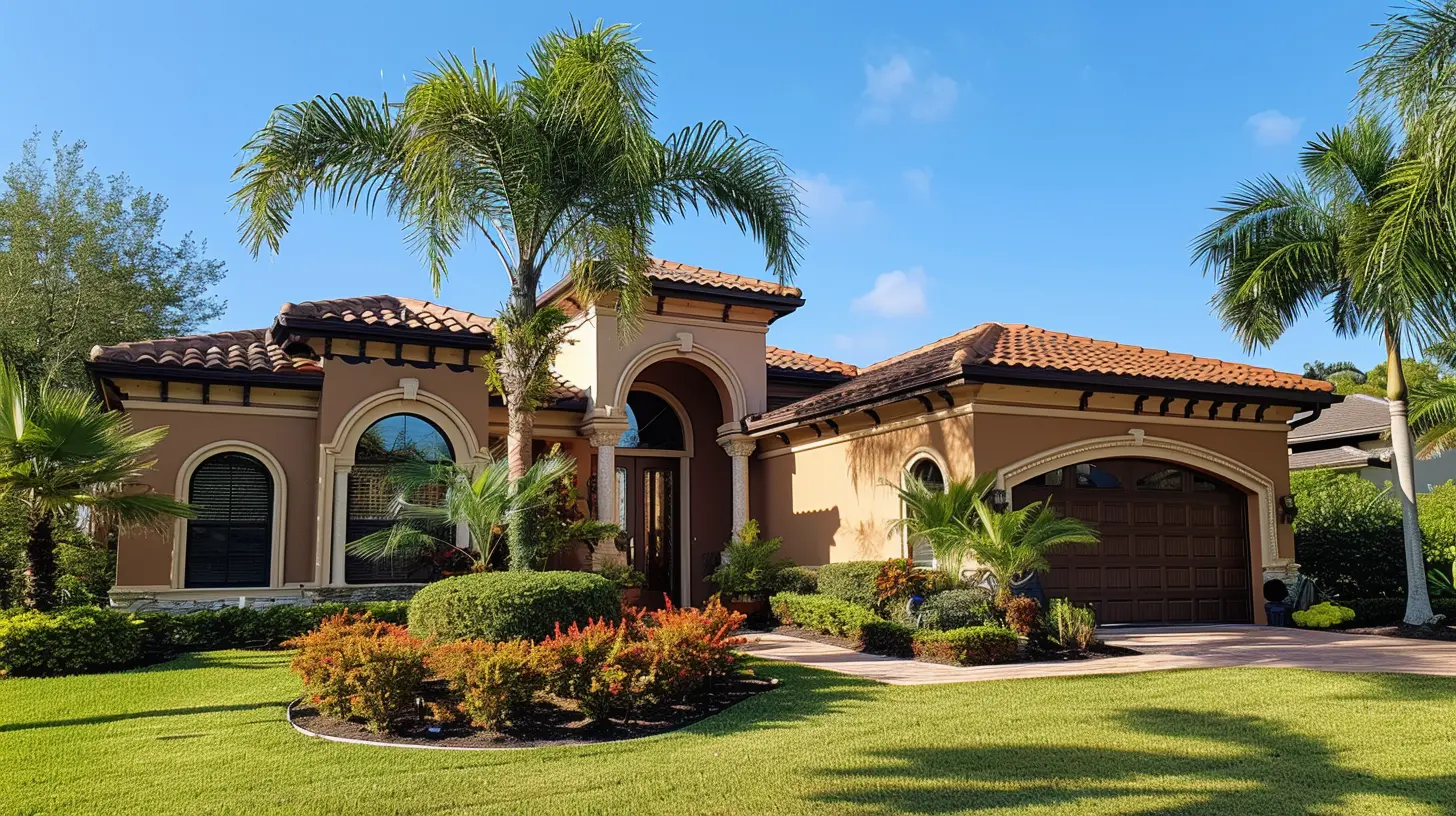Reverse Mortgages and Property Taxes: What You Need to Know
26 September 2025
So, you've hit that golden age where the kids are (hopefully) out of the house, your back cracks every time you stand up, and you're eyeing your home equity like a kid in a candy store. Enter the reverse mortgage—the financial tool that promises to let you enjoy your golden years without selling your beloved home.
But wait, before you start planning that dream vacation with your newfound cash, there's a little thing called property taxes lurking in the background, just waiting to rain on your parade.
Fear not! We're diving deep into what you really need to know about reverse mortgages and property taxes—with a side of sarcasm and just enough reality to keep you from making a colossal financial blunder.

What the Heck Is a Reverse Mortgage, Anyway?
Ah, the reverse mortgage. Sounds fancy and sophisticated, right? It’s basically the financial world’s way of saying, “Hey, you’ve been paying into this house for decades. Want some of that money back? Well, here ya go!”A reverse mortgage allows homeowners aged 62 and older to convert part of their home’s equity into cash. And, unlike a traditional mortgage where you make payments to the bank, the bank actually pays you. Sounds like a dream come true, but—spoiler alert—there’s always a catch.
The loan balance grows over time (because surprise, interest exists), and when you no longer live in the home (whether by selling it, moving, or, well… departing this earth), the loan must be repaid. Usually, this means selling the house.

Property Taxes: The Silent Wallet Killer
Now onto the fun part—property taxes. You didn’t think banks would just hand over cash without making sure Uncle Sam gets his share, did you?Owning a home means paying property taxes. And just because you’ve got a reverse mortgage doesn’t mean you suddenly get a free pass on those payments. In fact, if you fail to pay them, you risk losing your home faster than you can say “oops.”
Do I Still Have to Pay Property Taxes with a Reverse Mortgage?
In short: Yes. Absolutely. No excuses.The government doesn’t care if you’re 62 or 102—you still have to cough up those property taxes. If you don’t, your lender might kindly step in and pay them for you… and by “kindly,” I mean they’ll just add it to your loan balance, with a sprinkle of interest.
But if you continue ignoring those property tax bills, you could actually be foreclosed on. And, let’s be honest, getting evicted from your own home in your retirement years isn’t exactly a fun twist in the story of your life.
How Property Taxes Are Handled by Reverse Mortgage Lenders
Lenders aren’t in the habit of just trusting you to handle it. Some will require you to set aside funds for taxes and insurance from the get-go. Think of it as the reverse mortgage equivalent of a parental control setting—banks want to make sure you don’t accidentally (or conveniently) forget to pay your taxes.If they determine that you might be at risk of not paying (because let’s face it, a lot of people aren’t the best at budgeting), they might require an escrow-like setup where a portion of your loan is earmarked for these payments.

The Ugly Truth: How Unpaid Property Taxes Can Haunt You
What happens if you decide that property taxes are just a suggestion rather than a requirement? Well, let’s paint a delightful little picture:1. Late Fees Pile Up – The first time you miss a payment, you’ll get slapped with penalties. And no, they don’t just disappear if you ignore them.
2. A Tax Lien Could Be Placed on Your Home – The government doesn’t play around. If property taxes go unpaid for too long, they can put a lien on your home, meaning they get first dibs on your house when it’s time to sell.
3. Foreclosure Ain’t Just for the Young Folks – Yes, even retirees can lose their homes to foreclosure. And with a reverse mortgage, this process can happen way faster than you’d expect.

Ways to Keep Property Taxes in Check
Alright, so now you’re sufficiently panicked about property taxes. Let’s talk about how to keep them from ruining your reverse mortgage dreams.1. Budget Like Your Home Depends on It (Because It Does)
Make sure you’ve got a plan for paying those pesky property taxes. Whether you set aside money monthly or use some of your reverse mortgage funds, it has to be accounted for.2. Look Into Property Tax Exemptions for Seniors
Some states offer property tax breaks for seniors, veterans, or folks with disabilities. If you qualify, you could save a chunk of change. And who doesn’t love paying less taxes?3. Consider an Escrow Account
If managing taxes doesn’t sound like your idea of a good time, some lenders offer escrow accounts specifically for reverse mortgage holders. It takes the stress out of remembering due dates and may even prevent foreclosure.4. Downsize If Necessary
If property taxes on your current home are outrageous, maybe it’s time to consider a smaller, more affordable place. Less house, less tax. Easy math.5. Be Proactive, Not Reactive
Let’s be honest; most financial disasters happen because people ignore problems instead of tackling them head-on. If you foresee an issue with property taxes, talk to your lender or financial advisor before it spirals out of control.The Bottom Line
Reverse mortgages can be an amazing financial tool—if you know what you’re doing. But they’re not a magical loophole that lets you live tax-free. Property taxes still exist, and ignoring them will only lead to stress, penalties, and possibly even losing your home.So, if you’re considering a reverse mortgage, make sure you factor in the reality of property taxes. Because the last thing you want is to live your golden years battling foreclosure notices instead of enjoying that hard-earned equity.
Cheers to making smart financial choices—because no one wants to spend retirement in an unexpected game of “Where Will I Live Next?
all images in this post were generated using AI tools
Category:
Reverse MortgagesAuthor:

Vincent Clayton
Discussion
rate this article
1 comments
Khloe McGhee
Reverse mortgages can provide financial flexibility, yet they complicate property tax obligations. Homeowners must remain aware that unpaid taxes can lead to lender foreclosure. Proper financial planning is essential to balance leveraging home equity while ensuring tax responsibilities are met.
October 8, 2025 at 4:52 AM

Vincent Clayton
Thank you for your insightful comment! It's crucial for homeowners to understand the intricacies of reverse mortgages and their impact on property taxes to maintain financial stability and protect their home equity.


